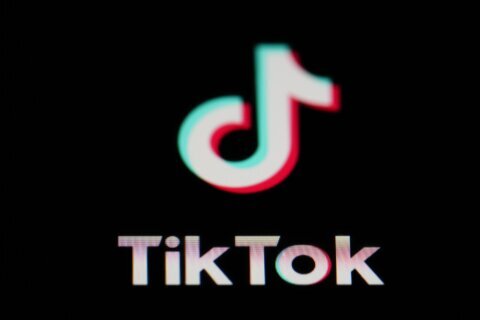The technology sector has had a bit of a bumpy ride in the first half of 2024. But despite a minor pullback in April, the Nasdaq-100 Technology Sector Index is up 11.3% year to date. This is hardly a surprise with the rise of artificial intelligence and increasing global dependence on technology.
[Sign up for stock news with our Invested newsletter.]
Technology has been a resilient sector and is likely to always be relevant given our current world, says Jason Werner, founder and accredited investment fiduciary at Werner Financial. “Also, tech companies have been known for their rapid growth structures, making them attractive for investors to add into their portfolios.”
But not all tech companies succeed, and trying to cherry-pick winners can be a loser’s game.
For simplicity and the assurance that you won’t miss out on all the fun, exchange-traded funds, or ETFs, allow you to hold many of the biggest names in Big Tech in a single ticker. With the capacity to hold dozens or even hundreds of tech stocks, ETFs can be a smart alternative to stock picking even in the best of times. But you still need to do your research to find the best tech ETF for your portfolio.
While technology is likely to continue growing in our world, not all funds are guaranteed the same success, Werner says. “We encourage investors to do their due diligence and research specific funds, as well as their underlying holdings before moving forward.”
If you’re thinking the tech future is still bright, here are some leading tech ETFs to consider in 2024:
| Tech ETF | Expense Ratio |
| Technology Select Sector SPDR ETF (ticker: XLK) | 0.09% |
| Vanguard Information Technology ETF (VGT) | 0.10% |
| VanEck Semiconductor ETF (SMH) | 0.35% |
| iShares U.S. Technology ETF (IYW) | 0.40% |
| iShares U.S. Tech Breakthrough Multisector ETF (TECB) | 0.40% |
| First Trust Nasdaq Cybersecurity ETF (CIBR) | 0.59% |
| First Trust Dow Jones Internet Fund (FDN) | 0.59% |
Technology Select Sector SPDR ETF (XLK)
Ranked the No. 1 technology ETF by U.S. News and earning five stars from Morningstar, the Technology Select Sector SPDR ETF is one to watch. It’s returned 15% year to date and comes in with a low 0.09% expense ratio. That means you’ll pay just $0.09 for every $10,000 you invest.
XLK tracks the performance of the technology companies in the S&P 500 and narrows the index of 500 companies down to only 65 holdings. This includes firms in all aspects of the tech industry, from hardware and storage providers to semiconductors and IT services. That said, it holds predominantly software companies, which represent more than 37% of the portfolio. This is followed by semiconductors and equipment companies at nearly 29% of the portfolio and technology hardware, storage and peripherals at nearly 23% of the portfolio.
Since it’s an S&P 500 tech fund, you’ll see many familiar names in the portfolio. Microsoft Corp. (MSFT) tops the list, accounting for more than 22% of the fund, followed by Apple Inc. (AAPL) at 21% of the fund. The top 10 holdings cumulatively account for more than two-thirds of the total portfolio, so consider yourself warned that if you opt for this fund, you’ll be making a fairly concentrated bet.
That bet has paid off over the past 10 years, thanks to tech’s favoritism in the stock market. XLK returned over 20% in the past 10 years and nearly 30% over the past 12 months. Just remember that favorites can fall out of favor at any time. Diversification is still the most reliable path to successful long-term investing.
Vanguard Information Technology ETF (VGT)
Perhaps the largest truly sector-specific technology ETF is VGT, with $73.5 billion in assets. Due to its market-weighting system, where bigger companies represent more of the portfolio, nearly 60% of the fund’s total assets are in the top 10 positions alone — with Microsoft representing over 17% of the portfolio. MSFT and Apple, the second largest holding, account for more than 30% between the two of them.
On the plus side, this leading technology ETF is cheap, charging just 0.1% annually in fees. But clearly you’re not getting a lot of sophistication here.
That said, Morningstar’s research team is bullish on this fund, giving it five out of five stars and a gold medal, indicating the researchers have the most conviction that VGT will outperform a relevant index or most peers over a market cycle. In fact, VGT has the distinction of being the only technology fund to earn both five stars and a gold badge from the analysts.
It also gets the highest sustainability rating for having some of the lowest environmental, social and governance, or ESG, risk in the technology equity sector, according to Morningstar. The analysts also note the low carbon risk score as a “key area of strength” for the fund, along with its very low fossil fuel exposure.
VanEck Semiconductor ETF (SMH)
Another five-star tech fund by Morningstar’s standards is the VanEck Semiconductor ETF. And this one blows many other funds out of the water in terms of year-to-date performance. However, it also lost more than 33% in 2022, so don’t expect every year to be a winner.
SMH tracks the MVIS US Listed Semiconductor 25 Index, which in turn tracks the 25 largest and most liquid companies in the semiconductor business that trade on the U.S. stock market. To qualify as “in the semiconductor business,” the companies must generate at least half their revenue from semiconductors or related equipment. They must also meet size and liquidity requirements, such as a market cap of at least $150 million and three-month average daily trading volume of 1 million shares or more.
Top holdings include Nvidia Corp. (NVDA), Taiwan Semiconductor Manufacturing Co. Ltd. (TSM) and Broadcom Inc. (AVGO). While the index claims to cap company weights at 20%, NVDA has grown a bit beyond its britches at more than 24% of both the index and SMH. This is nearly double TSM, at over 12%. Three-quarters of the portfolio is in the top 10 names, so once again, watch out for concentration risk. But if you want to place a bet on semiconductors, this could be the fund to do it.
[READ 9 Best Small-Cap Stocks to Buy in 2024]
iShares U.S. Technology ETF (IYW)
For broader exposure to the U.S. technology industry, consider IYW. The fund invests in 131 American companies in electronics, IT and computer software and hardware. In other words, many of the companies you’ve already seen on this list. Microsoft, Apple and Nvidia all top the list and account for nearly half the portfolio.
IYW tracks the Russell 1000 Technology RIC 22.5/45 Capped Index, which is a long name to describe how the index aims to keep companies from becoming too proportionately large in the portfolio. No company represents more than 22.5% of the portfolio. And all companies with weightings greater than 4.5% cannot, together, be more than 45% of the portfolio. Given that more than two-thirds of IYW’s portfolio is in the top 10 names, this strategy may not be great at providing diversification.
Most of the companies in the portfolio are engaged in software and services, followed by semiconductors and semiconductor equipment, which SMH has shown to be a lucrative sector this year.
Morningstar gives IYW five stars and a silver badge, so the analysts are optimistic about its future.
iShares U.S. Tech Breakthrough Multisector ETF (TECB)
Part of the fun of technology is how fast it moves. It seems like only yesterday the first cellphone debuted, and now we have computers in our pockets. If you want to invest in the cutting edge of technology, a fund like the iShares U.S. Tech Breakthrough Multisector ETF is the one for you.
TECB invests in companies that are poised to benefit from breakthrough technologies. These include all the topics that keep the tech media abuzz, such as robotics, AI, cybersecurity and even genomics and immunology. This results in a fund that, while still predominantly IT (at over 55% of the portfolio), gives you exposure to the communication sector (nearly 14% of the portfolio), health care (nearly 12%), financials (7.6%), consumer discretionary (6.5%), real estate (2.3%) and even industrials (1.8%).
The biggest names in the portfolio are still ones you’ll find in other tech ETFs. Nvidia, Meta Platforms Inc. (META) and Google’s parent Alphabet Inc. (GOOG, GOOGL) top the list. But right below these is health care company Merck & Co. Inc. (MRK) and not far below that are Visa Inc. (V) and Mastercard Inc. (MA). With 173 holdings in all, TECB is also less concentrated than other funds on this list. The top 10 account for 44% of the portfolio with the largest holding, NVDA, at only 8.7%.
Morningstar’s analysts look favorably on the fund, giving it a gold badge to indicate they have a high conviction it will outperform its index or most peers in the near term. It also gets four stars overall, though only a three out of five “globes” for its sustainability rating.
First Trust Nasdaq Cybersecurity ETF (CIBR)
If you want to narrow your focus to a particular area within the technology industry, cybersecurity could be a good choice.
“Cybersecurity has a long-term macro bullish thesis as it becomes more and more important, especially from an enterprise standpoint as we become more and more dependent on technology,” says Daniel Milan, investment advisor representative and managing partner at Cornerstone Financial Services in Southfield, Michigan.
For cybersecurity exposure, he likes CIBR, which invests in companies involved in cybersecurity within the tech and industrials sector. It only holds companies classified as cybersecurity companies by the Consumer Technology Association that have a minimum market capitalization of $500 million and a minimum three-month daily dollar trading volume of $1 million. This criteria results in a portfolio of only 30 stocks, more than half of which are software companies.
With more than $6 billion in assets itself, CIBR is the largest fund in the cybersecurity sector that provides strong liquidity, Milan says.
The fund has had a rough year so far, with negative returns. However, it’s gained 20% since this time last year. So the decline thus far in 2024 could just be a good buying opportunity.
CIBR earns three stars and a bronze badge from Morningstar. The bronze badge indicates the analysts are confident it will outperform an index or most peers over a market cycle on a risk-adjusted basis.
First Trust Dow Jones Internet Fund (FDN)
New technology startups seem to spring to life every day, but no one can predict which ones will live on. For this reason, it can make sense to focus on larger, more well-established companies within the tech industry. To this end, Milan recommends FDN.
“This fund provides broad exposure to technology companies with a tilt toward large-cap companies,” he says. “This provides broader exposure to the overall internet (and) tech sector than more focused funds and thus is a strong option for long-term investors looking to participate in the continued growth of our reliance on technology.”
FDN’s portfolio includes 41 companies, many of which are big names you’ll likely recognize, such as Amazon.com Inc. (AMZN), Meta Platforms and Alphabet. Companies considered for this selective portfolio are ranked based on their three-month market capitalization and three-month average trading volume.
Morningstar gives FDN two stars and a bronze badge.
More from U.S. News
Bitcoin vs. Ethereum: Which Is the Better Buy?
7 Best Fintech ETFs to Buy Now
How to Become a Millionaire by Investing
7 Best Tech ETFs to Buy in 2024 originally appeared on usnews.com
Update 06/13/24: This story was previously published at an earlier date and has been updated with new information.







